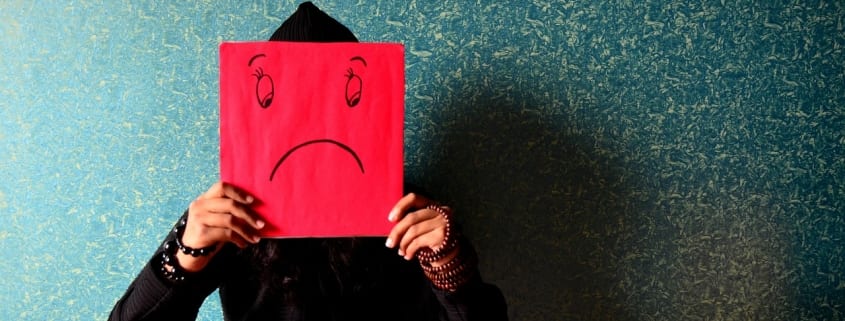PM to promise NHS mental healthcare boost for under-18s
Theresa May is to promise a major expansion of NHS mental healthcare for children and young people in an attempt to tackle the “scandal” of most under-18s not receiving treatment.
Health service managers said they hoped the move would end the persistent criticism that only a minority of young people receive help for debilitating conditions such as depression, eating disorders and psychosis.
The pledge will be included in the NHS long-term plan to be launched by the prime minister and the chief executive of NHS England, Simon Stevens, at a hospital on Monday.
For years MPs, psychiatrists, mental health charities and families have accused the NHS of letting down troubled teenagers by not ensuring that more of them received treatment.
The NHS responded by agreeing to increase the proportion of those with a diagnosable mental health condition who get treated from 25% to 35% by 2020-21. However, key people, such as the children’s commissioner, Anne Longfield, said that even the revised ambition was inadequate and cast doubt on the NHS’s commitment to ensuring “parity of esteem” between mental and physical health.
The long-term plan – which will set out how the NHS plans to spend the extra £20.5bn a year it will receive by 2023-24 – will make clear that many more under-18s will receive care over the next few years.
Stevens has been considering pleas from Claire Murdoch, NHS England’s national mental health director, and Paul Farmer, the chief executive of the mental health charity Mind, to increase the treatment target from 35% to 50%.
When questioned by MPs in October about the 35% figure, Stevens assured them the target would rise as part of the plan to deliver “a more ambitious set of service expansions and reforms in mental health, as well as in other areas”.
He said improvements in access to treatment meant 30.5% of under-18s were already being helped by specialist NHS child and adolescent mental health services (Camhs), and the NHS was “on track” to meet the 35% target by 2020-21.
May has pledged to dramatically improve NHS mental healthcare for people of all ages as part of her personal agenda to address the “burning injustices” in British society she identified when she took office in July 2016.
The prime minister has made better help for under-18s a key priority, and unveiled plans to give schools a key role and introduce a maximum four-week waiting time for young people to start receiving help, although initially only in some parts of England.
Stevens has cautioned that serious staffing problems across mental health services limit the NHS’s ability to expand Camhs care to deal with the growing number of under-18s affected by mental ill-health.
He told the public accounts committee of MPs: “We want to get to a position where ultimately every child who needs a specialist NHS mental health service is able to get it, but that might not be the same as every child with a diagnosable mental health condition, which at the moment is what the 30% or 35% is tracking.”
May will reveal key elements of the plan on The Andrew Marr Show on BBC One on Sunday morning, with the health and social care secretary, Matt Hancock, giving further details on Sophy Ridge on Sunday on Sky News.
Mental health campaigners made clear the plan must significantly increase the number of children and young people who receive help. They said that, just as NHS bosses would not allow under-18s with a serious physical condition, such as cancer, to go untreated, the same should apply to those with psychological or psychiatric conditions, some of which can lead to self-harm and suicide.
“The previous target of treating just a third of under-18s with a diagnosable mental health condition simply isn’t good enough, particularly given that the most recent statistics on the number of young people experiencing mental ill health showed there has been a significant increase in the last decade,” said Dr Bernadka Dubicka, the chair of the child and adolescent faculty at the Royal College of Psychiatrists.
“If they were waiting months or even years for cancer treatment there would be an outcry, which is why we’ve repeatedly asked the government to address this issue.”
The college has lobbied Stevens to commit in the plan to treating at least 45% of children in need by 2023-24, and wants to see that increased again to 70% by 2028-29.
Anne Longfield, a vocal critic of the delays and rationing of care families face when seeking help for their child from Camhs, said all young people with mental health problems should get help.
“I’ll welcome any progress being made to improve services, but any system that does not provide Camhs support to every child who needs it will still be failing thousands of children. I can’t ignore that. Nor would any of us if it were physical illness under discussion.
“The government must aim higher and provide clear targets and timetables so that by 2023 no child who needs help is turned away.”
Emma Thomas, the chief executive of the charity YoungMinds, said: “We’re facing a mental health crisis for young people, with more than a million having diagnosable mental health problems and the vast majority not able to access NHS support.
“Parents and young people tell us every day that they have been left to cope on their own while their problems have got worse, with some dropping out of school and becoming suicidal.”
- Childline in the UK can be reached on 0800 1111, or by confidential email via its website.
- In the UK, Samaritans can be contacted on 116 123 or email jo@samaritans.org.




Leave a Reply
Want to join the discussion?Feel free to contribute!